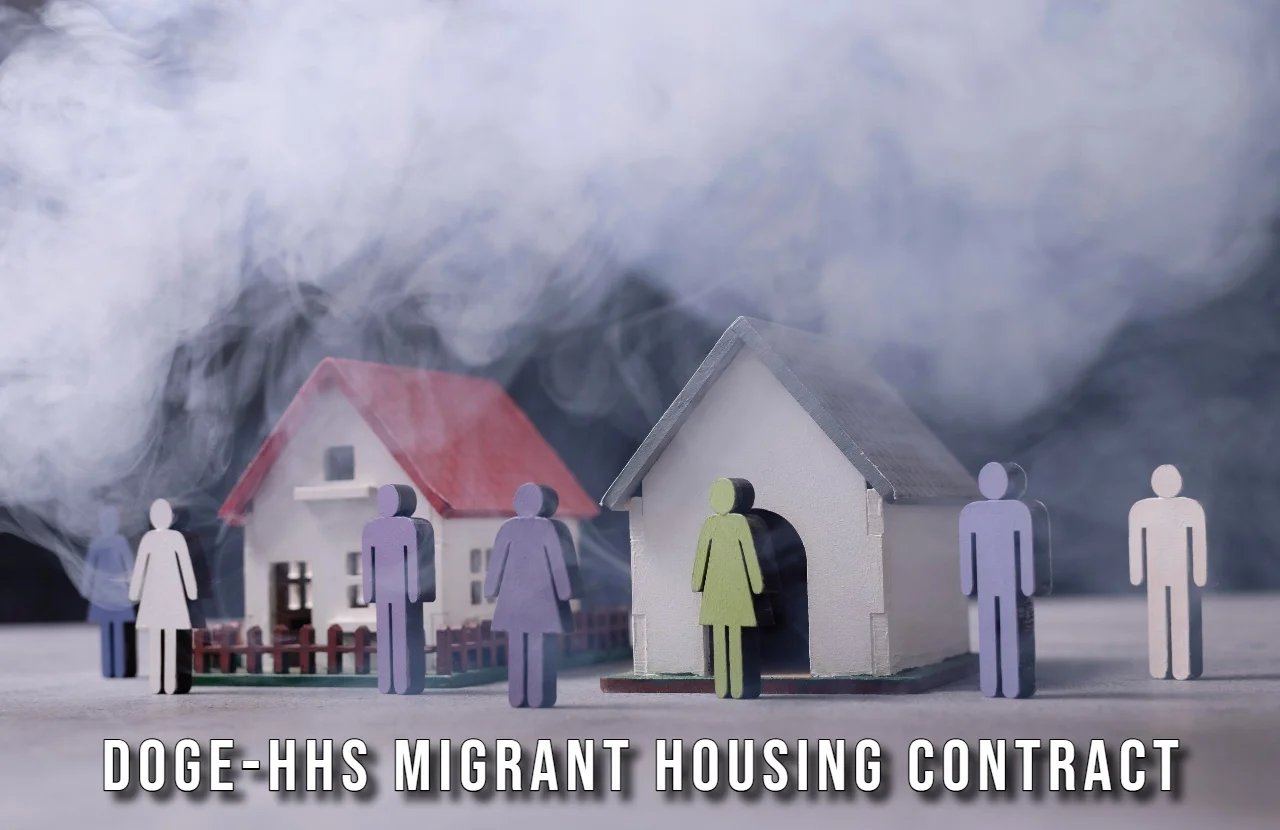Introduction to the Issue
The $18 million HHS-DOGE migrant housing contract sparks fierce debate. Politicians, activists, and indigenous groups oppose it, questioning its transparency and impact, while supporters praise its streamlined approach to house migrant families at U.S. borders. The agreement tests innovative migrant care methods, addressing past bureaucratic failures. It aims to meet fleeing families’ needs but raises concerns about local resource use and oversight. Understand its origins and implications to form your own view. Visit the HHS website for current migrant support program details and engage locally.
DOGE and HHS Partnership Explained
DOGE, a tool designed to cut government waste, is now working with HHS that takes care of migrants through the Office of Refugee Resettlement. The doge hhs migrant housing contract is a result of a 2024 executive order that calls for leaner federal operations, with a focus on housing for migrant families. DOGE is in charge of procurement, while HHS is responsible for the welfare of the children. The $18 million is used to pay for modular housing, transportation, and support services in border areas such as Texas and Arizona. This partnership is the solution to the problem of overcrowded facilities that face economic pressures. The opponents of the plan warn that the privatization may result in the preference of profits over the well-being of the people, which has been mentioned in the congressional hearings. The supporters say that it is the way to save millions by cutting redundancies.
Contract Breakdown
The doge hhs migrant housing contract outlines clear allocations. DOGE secures cost-effective housing, like prefabricated units with essentials, costing $5 million for setup. HHS ensures health screenings and counseling, with $10 million for operations and $3 million for impact evaluations. Contractors face strict deadlines, with penalties for delays to keep shelters operational. DOGE’s tech innovations, like AI-driven resource allocation, speed up family placements. Quarterly audits, posted online, boost accountability. Readers can verify details with Government Accountability Office reports. Actionable step: File FOIA requests to access detailed contract documents for greater transparency.
Controversies and Challenges
The doge hhs migrant housing contract sparks concerns over conflicts of interest, given DOGE’s private-sector connections. Groups like the ACLU warn that prioritizing efficiency could weaken migrant protections, pointing to past substandard facilities. Lawmakers debate whether the funding siphons resources from domestic programs. Communities near housing sites protest potential strain on schools and hospitals. DOGE claims $2 million in yearly savings, but redacted contract details fuel skepticism. Advocates push for community-based housing alternatives. Engage by fact-checking sources on social platforms. Actionable insight: Contact your representatives to push for stronger safeguards within the contract.
Transparency Issues
Transparency remains a sticking point. DOGE releases summaries, but vendor lists stay confidential for security. HHS commits to annual reports on migrant outcomes, like reunification rates. Critics demand real-time fund tracking to build trust. Officials host webinars to clarify decisions, and you can join to ask questions. Actionable step: Subscribe to newsletters from nonpartisan groups like the Migration Policy Institute for balanced analysis.
Community Impact
Border communities, like those in El Paso, feel the contract’s weight. New facilities create jobs but stress local utilities. Residents hold forums to integrate migrants, ensuring access to education. DOGE incorporates community feedback, easing tensions. Actionable insight: Volunteer with local NGOs to see the contract’s effects firsthand.
Impact on Migrant Families
Migrant families, escaping violence or poverty, depend on the contract for safe housing. It delivers beds, meals, and medical care, with HHS providing translators and trauma support. DOGE’s efficiency cuts wait times. Yet, funding uncertainties cause anxiety, reflected in online family stories. Actionable step: Read migrant organization accounts to humanize the data.
Policy Implications
The doge hhs migrant housing contract could redefine immigration policy, merging efficiency with compassion. Its approach may influence disaster relief or future budgets. If controversies grow, reforms could follow. Track related bills on Congress.gov to stay engaged. Actionable insight: Vote on policies tied to such contracts.
Conclusion: Shaping the Future of Migrant Housing
The doge HHS migrant housing contract boldly addresses migrants’ needs with compassion and efficiency. It balances cost and dignity, urging legislators to refine their approach. It offers hope to safety-seeking families while demanding scrutiny to ensure promises are kept. Your role—along with communities, advocates, and citizens—is vital. Rely on trusted sources like HHS reports, attend community discussions, support NGOs, or urge authorities for transparent, humane policies. This pact is more than policy—it’s a moral imperative. Your engagement, from voicing opinions to voting, shapes its legacy and future initiatives. Review original documents or join discussions to drive change.
